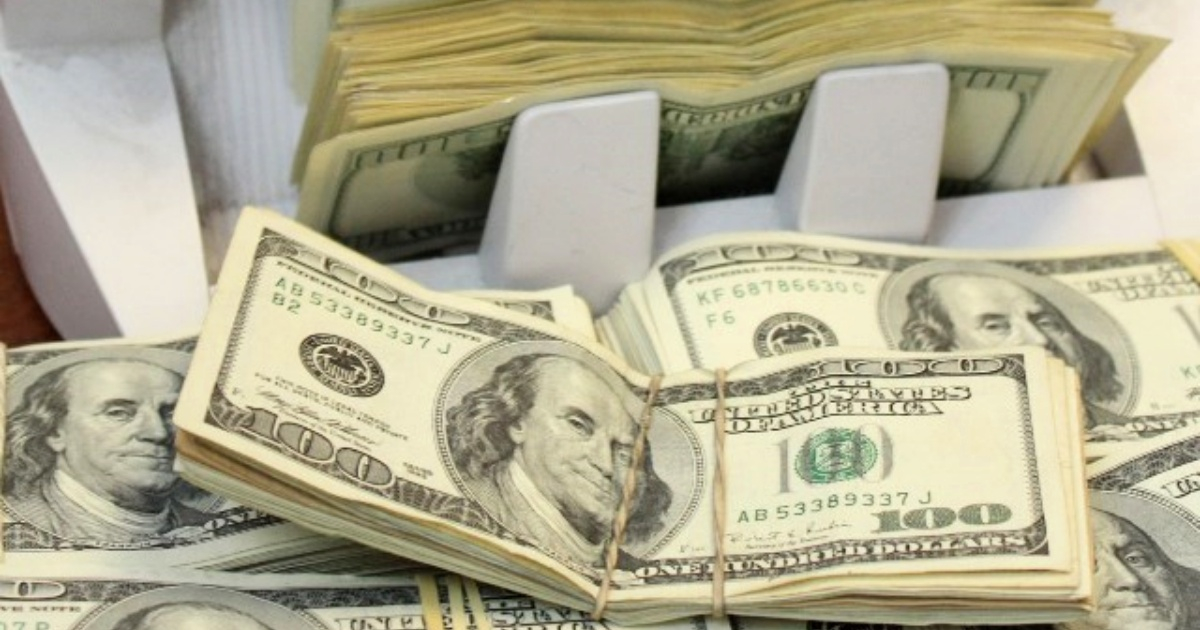
Related videos:
Customs authorities at Panama Pacific International Airport recently confiscated thousands of dollars from a traveler who failed to declare the amount of money he was carrying on a commercial flight from Havana.
This is the third time it has happened at that airport so far in January.
In this case, a Cuban citizen was caught attempting to enter the country with 25,000 balboas (25,000 dollars) that he had not declared in his Digital Affidavit.
The incident occurred when a Customs inspector questioned the passenger about the amount of money he was carrying.
The citizen asserted that he was carrying only 9,000 balboas (9,000 dollars), an amount within the allowed limit without declaration.
However, after a routine inspection with a scanner, irregularities were detected in a personal bag.
During a secondary inspection, conducted in the presence of a National Police officer, it was discovered that the money was hidden inside a book, according to a report by the National Customs Authority (ANA) of Panama in a statement.
The 25,000 balboas were immediately seized and placed under the custody of the Public Ministry, in accordance with established legal procedures.
This case adds to two other similar incidents recorded at the same airport terminal in January, all involving flights from Havana.
Authorities remind travelers of the importance of adhering to currency declaration regulations to avoid legal penalties and complications.
The Public Prosecutor's Office and the National Customs Authority (ANA) continue to investigate these incidents as part of an effort to strengthen transparency and prevent illicit activities related to the movement of undeclared money.
The ANA emphasized the importance of correctly declaring cash when entering the country, an essential measure to prevent money laundering and the illicit trafficking of currencies. Authorities have urged all travelers to comply with these regulations to avoid penalties.
According to the laws of the Central American country, it is permitted to bring in any amount of money, but there is an obligation to declare amounts if the total exceeds 10,000 dollars or its equivalent in other currencies, including: traveler's checks, bonds, or other documents.
In the case of Cuba, the government barely allows travelers to take out 5,000 dollars from the country.
Frequently Asked Questions about Money Smuggling and Customs Regulations in Panama and Cuba
What happened at the airport in Panama with the undeclared money coming from Havana?
The customs authorities at the Panama Pacific International Airport confiscated 25,000 dollars from a Cuban citizen who did not declare the amount of money he was carrying on a flight from Havana. The cash was hidden inside a book and was discovered during a routine inspection.
What are the customs regulations in Panama for declaring cash?
In Panama, it is mandatory to declare any amount of cash that exceeds 10,000 dollars or its equivalent in other currencies. This regulation aims to prevent money laundering and the illicit trafficking of currencies. Travelers must adhere to these regulations to avoid legal penalties.
What problems does Cuba face with the illegal currency trade?
Cuba has recorded an increase in the illegal currency trafficking, with attempts to withdraw money without authorization and in amounts exceeding the 5,000 dollars limit imposed by the Central Bank of Cuba. The General Customs of the Republic is working to address this issue and ensure compliance with regulations.
What measures are the Panamanian authorities taking to combat the movement of undeclared money?
Panamanian authorities are strengthening transparency and the prevention of illicit activities related to the movement of undeclared money. The National Customs Authority and the Public Ministry continue to investigate incidents at the airport to enhance controls and ensure compliance with customs regulations.
Filed under: